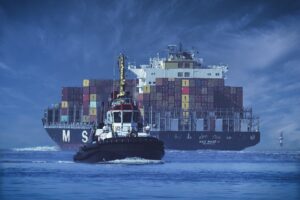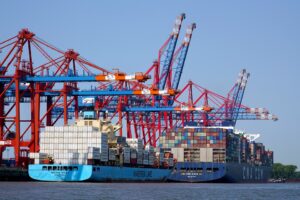The Shipping Industry Is Lagging Behind on Embracing AI
Artificial intelligence can provide forwarders with an opportunity to enhance their decision-making capacity. Data transmitted by commercial vessels, for example, can be used for predictive guidance and performance monitoring, enabling businesses to forecast greenhouse gas emissions. This is a way to lower emission levels and ensure carbon transparency. Other implementations include automated processes, improved scheduling, […]



